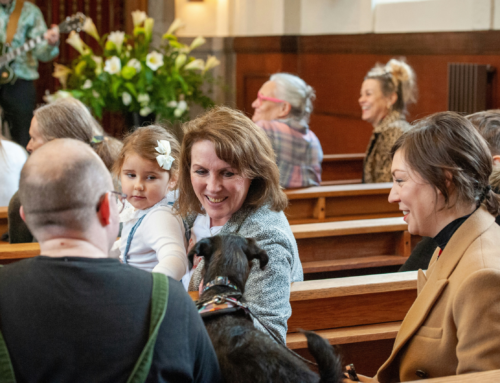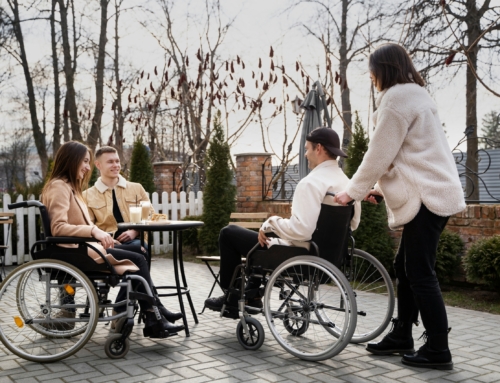There are many forms of privilege and power including but not limited to money, time, resources, and one’s voice. Often, somebody that holds a lot of power or privilege of one type has an easier on-ramp to additional forms of privilege and power than somebody who does not. Thus, rather than being evenly distributed, power tends to accumulate. This is a symptom of our broken humanity rather than the values of the kingdom of God in action.
Our ultimate example of someone who surrendered control and shared their power is Jesus. He could have had all the power in the world. Instead, he took on the very nature of a servant and came to abide with us. He first shared his power with the 12 apostles, empowering them to preach, to teach and to heal in his name. He continues to empower each of us through his Holy Spirit so that we can love each other as he loved us, propelling us toward human flourishing whatever that looks like.

Chantal participated in a a dance session at the Unshaken Kingdom conference last year, where she was also a presenter.
In many ways, I am flourishing, I have food, clothing and shelter. I live in a safe place with the company of Mocha, my dog. I have a job that I love. I belong to, and feel valued by, a vibrant faith community. Still, as a woman living with disabilities in Ontario, Canada I frequently find myself compensating for the things that I cannot do, which people without disabilities might take for granted, and I often feel guilty asking for disability related accommodations rather than assuming that communities and events are accessible for everyone.
I have to live my life in accordance with many systems and regulations which people without disabilities do not have to abide by. There are regulations pertaining to the Ontario Disability Support Program (ODSP), to the attendant care services that I rely on for assistance with tasks of daily living, to booking and riding accessible transit, to maintaining Rent Geared to Income, and to paying off student loans.
The regulations within the variety of aforementioned social programs and services are well intended to serve the greatest number in need and promote safety for all. An unintended consequence of these regulations, however, is that they place power within the policy rather than the people.
At various times I have found myself arguing with system administrators about everything from the length of time it should take me to use the washroom, about whether or not I should remain eligible for accessible transportation in spite of the fact that my decade-long registration expired without notice, or about whether or not ODSP should cover the expense of my wheelchair repairs since my income is now above the poverty line.
Based on Jesus’ example I know that the key to shalom, or wholeness, and human flourishing is not found in the pursuit of power or obsession with control. In an upcoming blog post I will further explore Jesus’ example of shared power and my need to resist feeling disheartened and discouraged, if not destabilized, by a lack of a sense of power or control over many domains of my life.


